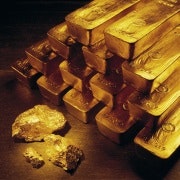West End's curtain call for cheap theatre tickets
Britain’s longest depression officially ended on July 25 when gross domestic product reached the level at which it had stood six years and three months ago in 2008.
These years have been hard: unemployment peaked at close to three million in 2011 and real wages have been falling steadily. Those are the statistics but, walking through the streets of central London, visitors would be more impressed by the evidence of prosperity, not depression.
Last year a record 16.8 million tourists visited London -- exceeding the number of visitors to Paris or New York. London declared itself the globe’s most popular city.
This year, experience tells me that the numbers are up significantly again. Pavements are crowded with people holding up the flow while they consult their maps and ask for directions in broken English.
Many tourists arrive wanting to take in a show, but just try to get a ticket for a hot show in the West End. If seats are available, they will usually be at premium prices. Hold your breath: the most expensive ticket in town is for a musical The Book of Mormon, and it costs £152.55 ($275). Sectors of the London economy, and the theatre in particular it seems, have never learned to spell the word ‘depression’.
Last week a London theatre report produced by the Society of London Theatre and the National Theatre made the point that the theatre is a major driver of London’s economy.
The report finds that theatre attendances in 2012-13 were 22 million in 241 theatres, way ahead of New York. Box-office takings were £618.5 million; the audience was larger than for Premier League football; and the box-office take was more than for all London’s cinemas.
The audience just for SLT’s members in the West End, which included the National Theatre and Royal Shakespeare Company transfers from Stratford-upon-Avon, was 14.6 million, and the box-office take was £585 million.
A decent slice of that audience came from abroad: estimates of the proportion of tourists at commercial theatre performances ranges from 24 per cent to 30 per cent. And if the visitors and the natives get into conversation, the tourists might say that they found ticket prices higher than they expected. But a theatre is part of the London experience, so they continue to pay up. Regular theatre-goers among the natives, however, are growing restless.
Musicals are the most popular shows with tourists, probably because a good grasp of English is not required. They are also the most expensive tickets. Stalls for The Lion King, for example, cost between £75 and £125 (cheapest tickets £37.50). The two plays drawn from the RSC productions of Hilary Mantel’s celebrated novels about Thomas Cromwell (Wolf Hall and Bring up the Bodies) have a top price of £112.50, and the natives have already bought up all the cheaper seats at £30.
National Theatre transfers such as War Horse come in at £90 for the stalls, but only £25 for seats at both sides of the theatre. Tickets for the small but ambitious Almeida Theatre are £35 in Islington and £85 when the show transfers to the West End. (Best value is to be had at the Regent’s Park Open Air Theatre in the summer, unless it is pouring.)
The London theatre report declares that London’s greatest strength is the intertwined nature of the commercial and the subsidised theatres, which are “unreplicated anywhere else in the world”. It produces profits for both commercial management and theatres such as the National.
When I go to the theatre, I usually pay between £50 and £65. Sir Richard Eyre, who ran the National Theatre for a decade in the 1990s, commented in The Independent newspaper this week: “£60 is what you would pay for a pair of shoes. But you know the shoes will fit.” Visits to the theatre involve an element of risk, and prices as they now stand make it harder to tolerate disappointment.
Mark Rubinstein, who manages War Horse in the West End and speaks for SLT, concedes that ticket prices are expensive. He says that the idea for premium tickets (charging more for seats in the centre of a few rows of good stalls) arrived from Broadway eight years or so ago. He argues that previously the premium went to scalpers; now it goes directly to the theatre. “Top prices have gone up but low prices remain low,” he says. SLT argues that average ticket prices have risen no faster than inflation.
That is not how it feels. News from across the Atlantic is that New York theatre owners are concerned that high prices on Broadway will eventually meet consumer resistance. That may well happen in London too. But no one should hold their breath.
















